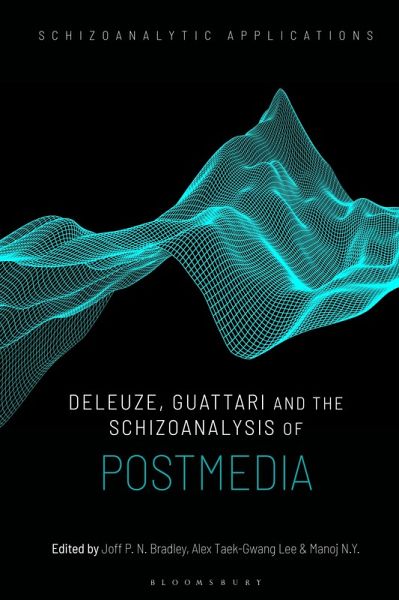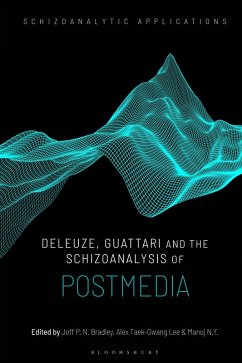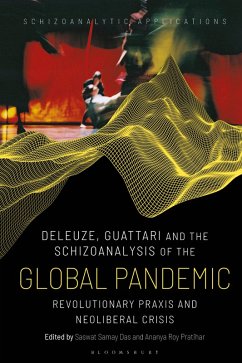
Deleuze, Guattari and the Schizoanalysis of Postmedia (eBook, PDF)
Versandkostenfrei!
Sofort per Download lieferbar
24,95 €
inkl. MwSt.
Weitere Ausgaben:

PAYBACK Punkte
12 °P sammeln!
Is the self or subject discontinuous across technological platforms? Do technological developments increase inequality and exploitation? Is the new media landscape creating a dangerous distraction from the climate crisis? Connecting the work of critical postmedia studies to Deleuze and Guattari's concept of schizoanalysis, this book marks a bifurcatory shift in the radical theory on technology. A range of critical perspectives are explored by international authors who engage with ecology, ecosophy, climate change, the postmedia condition, and the Anthropocene. Answering the above questions, ed...
Is the self or subject discontinuous across technological platforms? Do technological developments increase inequality and exploitation? Is the new media landscape creating a dangerous distraction from the climate crisis? Connecting the work of critical postmedia studies to Deleuze and Guattari's concept of schizoanalysis, this book marks a bifurcatory shift in the radical theory on technology. A range of critical perspectives are explored by international authors who engage with ecology, ecosophy, climate change, the postmedia condition, and the Anthropocene. Answering the above questions, editors Joff P.N. Bradley, Alex Taek-Gwang Lee, and Manoj N.Y. frame the volume's chapters as urgent responses to unbridled technological advance and impending climate disaster. Using ecological philosophy as a core focus, the volume analyses new media, technologies of the self, the power of algorithms, and technologies of resistance, to outline a materialist paradigm capable of addressing crises across the cultural, biological, and informational spheres. Through contesting economies built on desire and destruction and questioning the infiltration of capitalism in all of its spheres of negative influence, the editors review recent technological developments in light of Deleuze and Guattari's earlier seminal theories to make bold new connections and critiques in the study of media, philosophy, and the environment.













